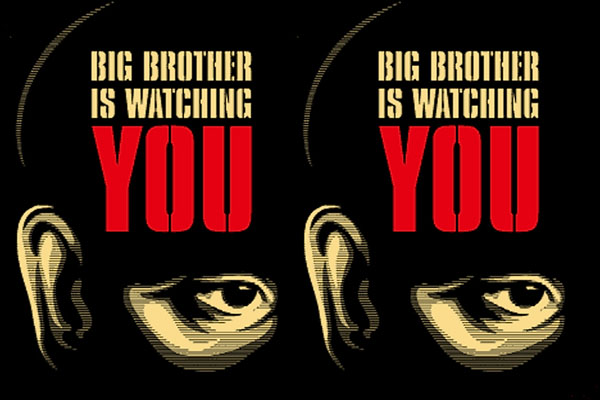
HOW TO HIDE YOUR DIGITAL COMMUNICATIONS FROM BIG BROTHER
J.P. Hicks
Big Brother is hoping to eliminate anonymous digital communication, but a new messaging protocol may provide privacy advocates a way around their snooping government no matter where they live.
It couldn’t come at a better time as governments increasingly demand access to private communications.

In fact, an FBI whistleblower recently revealed that all digital communications are being recorded and stored by the U.S. government.
Since most emails, instant messaging, and all voice calls (land line, cell or internet) run through central service providers that database all user activity, the government has easy access to this information upon request, secret subpoenas or even backdoors to these services to view private communications in real time.
The Associated Press was recently violated by the Department of Justice who, with a secret subpoena, forced service providers to hand over phone records of AP’s reporters and central offices.
The U.S. government claims the authority to track, trace, and database all electronic communications in order to keep us safe. Despite the obvious intrusion of privacy, it clearly has the intent to spy on all communications and is actively seeking expanded legal cover and technological advances for full spectrum digital surveillance.
Large central service providers make this nefarious goal possible.
But as the government cracks down on Web privacy, a new decentralized communication protocol called Bitmessage has emerged to offer an easy way for people to send and receive encrypted messages.
What is Bitmessage?
Bitmessage is a peer-to-peer encrypted messaging protocol that allows people to communicate anonymously.
Bitmessage’s official description is as follows:
Bitmessage is a P2P communications protocol used to send encrypted messages to another person or to many subscribers. It is decentralized and trustless, meaning that you need-not inherently trust any entities like root certificate authorities. It uses strong authentication which means that the sender of a message cannot be spoofed, and it aims to hide “non-content” data, like the sender and receiver of messages, from passive eavesdroppers like those running warrantless wiretapping programs. (Source)
Based loosely on Bitcoin‘s open-source protocol, Bitmessage utilizes the computer power of decentralized users to process the messages making them essentially impossible to track. Addresses are made up of 36 random characters as opposed to a name and other personal information that email services require.
Example Bitmessage address: BM‐2nTX1KchxgnmHvy9ntCN9r7sgKTraxczzyE
In their white paper, the Bitmessage developers emphasize that privacy was their main motivation for creating it:
Hiding one’s identity is difficult. Even if throw‐away email addresses are used, users must connect to an email server to send and retrieve messages, revealing their IP address.
…if just one of those organizations is run by a government agency, and if they have certain network hardware in place between users and destination servers, then they would be able to perform a targeted man‐in‐the‐middle attack of ostensibly secure communications at will…
What is needed is a communications protocol and accompanying software that encrypts messages, masks the sender and receiver of messages from others, and guarantees that the sender a message cannot be spoofed, without relying on trust and without burdening the user with the details of key management.
The addresses not only emphasize privacy but guarantee sender verification:
While certainly more cumbersome than an email address, it is not too much to type manually or it can be made into a QR‐code. Users have already demonstrated this to be acceptable as Bitcoin addresses are similar in format and length. This address format is superior to email in that it guarantees that a message from a particular user or organization did, in fact, come from them. The sender of a message cannot be spoofed.
Though it may sound complicated, Bitmessage makes it easy for anyone to communicate anonymously. Once the program is downloaded on your computer, you just need to set “Your Identities”, “Passphrase”, and “Addresses” in your Bitmessage folder which is much like a Bitcoin “wallet”.
Then it works similarly to email where you choose from one of your “From” addresses to compose a message to “Send” to another address. The message’s encryption is then “processed” by the peer-to-peer network of servers and delivered to the recipient’s “wallet” (Bitmessage folder) on their personal computer. The “stream” or “proof of work” takes roughly four minutes to process the message to the recipient.
Bitmessage also offers a “broadcast” feature for mass announcements. So if you run an organization, website or blog with a newsletter, you can send anonymous “broadcasts” to subscribers. Meanwhile, subscribers can sign up without giving out their email address or anything that links them to the information.
Just as Bitcoin has the potential to displace centralized currencies, Bitmessage may be the future of free and private communication. As the government increases its Big Brother spying on average citizens, Bitmessage proves that freedom will always find a way.
Watch the video below for more information about Bitmessage:

